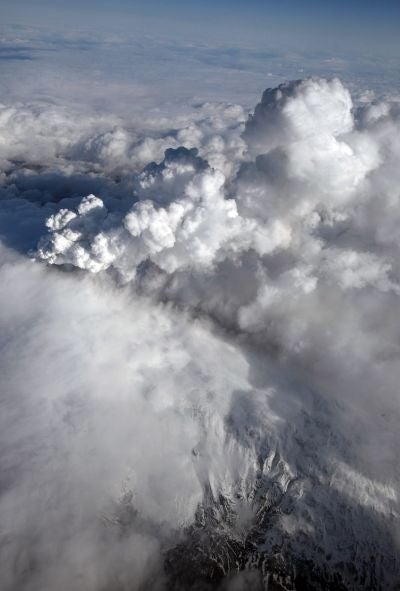The eruption of the Eyjafjallajokull volcano has prompted a renewed interest in geology from many people who hadn't considered volcanic activity since science lessons at school - helped, no doubt, by thousands of stranded travelers with little else to do but wait.
Volcanology watching is as spectacular as it is dangerous, but experiencing a Dante's Peak-esque flee from lava doesn't have to be part of the activity.
Introducing: The Volcano
First off, some basic science on how volcanoes work.
For a look at the basic dynamics of the volcano, the BBC has produced an animated guide:
http://news.bbc.co.uk/2/hi/science/nature/7533964.stm
National Geographic also has a Volcanoes 101 video, providing an introduction to the Earth's volcanoes for the beginner:
For more advanced reading, try the Wikipedia guide to the volcano:
http://en.wikipedia.org/wiki/Volcano
The Smithsonian's Global Volcanism Program offers a wealth of information, including frequently asked questions dealing with vital topics such as "what is a volcano?"
Historical Context
For those wondering why volcanoes don't usually present such a problem, some quick history lessons could be in order.
Start with the last "supervolcanic" eruption, some 74,000 years ago in Indonesia and the most powerful eruption in the past 2 million years. NASA's Earth Observatory has fascinating satellite images of the Toba Caldera:
http://earthobservatory.nasa.gov/IOTD/view.php?id=7380
Mount Vesuvius is the only active volcano on mainland Europe and gave us a fascinating insight into Roman life when it covered (and perfectly preserved) Pompeii and Herculaneum in 79AD. The Discovery Channel has a feature and DVD available on the famous eruption here:
http://dsc.discovery.com/convergence/pompeii/pompeii.html
The International Association of Volcanology and Chemistry of the Earth's Interior has a least of 16 notable volcanoes, knwn as Decade Volcanoes, complete with links and maps here:
http://vulcan.wr.usgs.gov/Volcanoes/DecadeVolcanoes/
Find some fellow volcano fans in volcanologist forums and clubs online
http://www.volcano.si.edu/
http://www.volcanolive.com
http://volcano.oregonstate.edu/
Follow the Eyjafjallajokull activity
The Nordic Volcanological Center blogs the latest data from GPS satellites, radar and observation centres around Eyjafjallajokull at:
http://www2.norvol.hi.is/page/ies_Eyjafjallajokull_eruption
NASA's Earth Observatory posts daily satellite pictures of the eruption:
http://earthobservatory.nasa.gov
Vodafone posts hourly pictures of the volcano:
http://picasaweb.google.com/102175391233488315229

Join our commenting forum
Join thought-provoking conversations, follow other Independent readers and see their replies
Comments